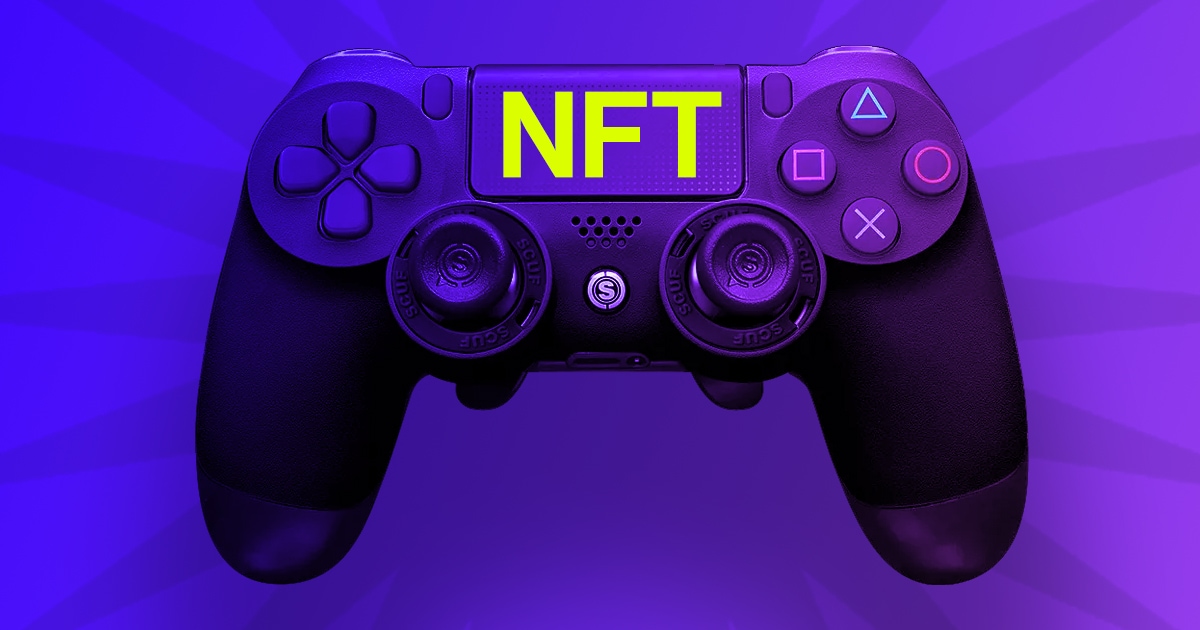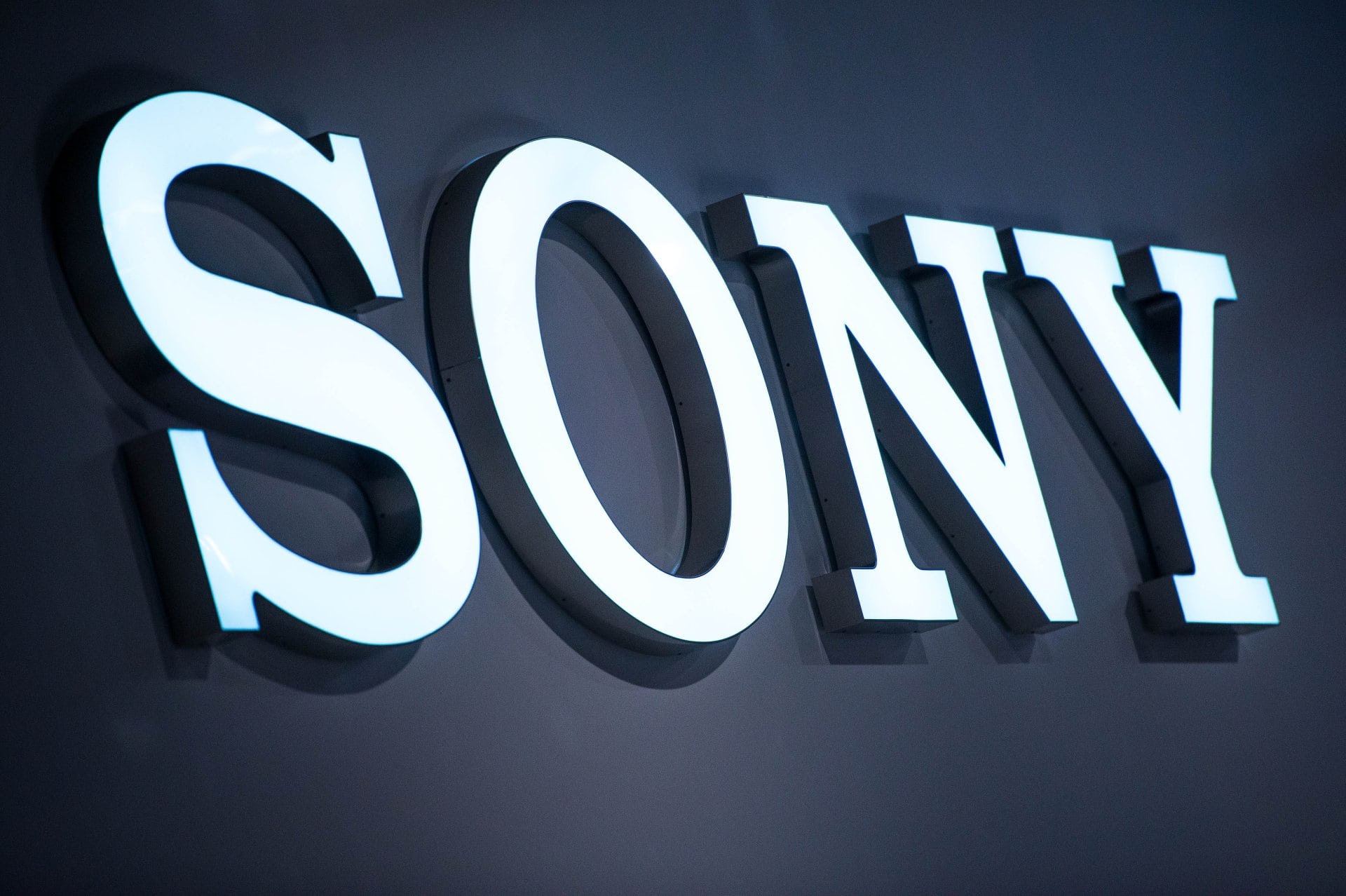
Is the future of gaming safe in the metaverse? With even Sony, kings of the single-player experience, realigning its cross-hairs towards live service games, the spate of recent buyouts in the gaming sphere heralds a worrying future.
A small but remarkable thing happened last month at the Evo fighting tournament. As usual, Sony was present at the annual event and offered free t-shirts to attendees if they completed a series of ‘quests’. One such step to fulfilling this goal was filling in a survey about which types of NFTs players were most desirable.
Compared to the grand NFT plans outlined (and shelved shortly after that) by other video game companies in the last year or two, an innocuous question on a throwaway survey seems harmless enough. That goes double where Sony is concerned. After all, the producers of the PlayStation are a company that has long maintained its superiority in the console space by avoiding gamer exploitation with crude cash grabs such as NFTs, choosing to almost always prioritise the player experience.
But how much longer will this be the case? The nature and timing of this survey highlight a couple of the prime concerns centred around the creeping onset of what has been grandly dubbed gaming’s ‘future’. You know, of course, what we are talking about here: the so-called ‘metaverse.’ Whilst Web 3.0 has been loudly hailed in some quarters as a soft reboot to restore the egalitarian principles of the original world wide web, that is little more than fancy window dressing.

The shape that the current incarnation of Web 3.0 is taking represents little more than a more technologically-sophisticated way to pry from you from your cash, your privacy and your time. What’s more, the slow corporate takeover of the gaming space represents the lure that is being artfully constructed to reel you in.
Questions have been raised as to why Sony’s survey neglected to offer gamers the option to register their distaste for NFTs. Likewise, others have been left scratching their heads at the timing of Sony’s question: NFTs have been roundly lambasted by gamers worldwide as a toxic incursion into the gaming space: even to mention them can damage a company’s standing with fans. With this firmly established, why would Sony risk a PR backlash to harvest data regarding a technology that players have unanimously rejected?
The answer to both of these questions is the same. Sony, a company, once renowned for putting the player experience at the centre of all of its decision-making, is slowly coming to believe that there is no long-term future in this path. The controversial NFT survey is simply another tiny signpost that the company is actively pursuing the same strategic long game as Microsoft, Meta (the platform formally known as Facebook) and its other rivals.
Taking over
Sony owns Evo, probably why the company chose the annual eSports tournament to pose the controversial question. No self-respecting independent video gaming event would have allowed the question on that survey to stick, for fears it could stoke the wrath of fans and damage the event’s standing. But much like NFTs, corporate takeovers of entities like Evo are another vital step in the road to the metaverse, with the big players in the gaming space using buyouts as a method to solidify the foundations of what they believe is the future of online spaces, be it gaming, commercial or social.

Case in point? In July, Sony finally completed its long-mooted takeover of Bungie, marking another major corporate takeover in the video games industry. Of course, this is just a single footnote in the broader transformation of the creative industries, sparked in 2013 when Netflix segued from being a ‘content-streaming platform’ to a working production company, effectively marking the moment when Big Tech would push major, significant capital into entertainment media.
A year later, Facebook would fork out an eye-watering two billion dollars for Oculus, a fledgling VR company. From that point forwards, the gaming industry would slowly become one of the most heated battlegrounds in determining corporate supremacy. All five major players in Big Tech, including Amazon, Apple, Microsoft, Facebook and Google, have attempted to gain a foothold in the gaming space, some with more success than others.
Into the metaverse
Whilst, like us, you might raise a sceptical eyebrow when confronted with the metaverse concept, know that these companies treat the idea with the utmost seriousness. With their immersive nature, interactivity and immense popularity, video games represent the ideal medium with which corporate behemoths like Microsoft and Meta can usher us into an online existence where they hold the keys to meticulously constructed immersive environments designed to grab our attention and keep it for as long as possible.
This is the war for Web 3.0, and the corporate takeovers we see in the games industry represent the first shots fired. After all, what is a metaverse without users populating it? This is most nakedly apparent with Microsoft’s brace of high-profile takeovers, firstly last year’s purchase of Bethesda, and now the industry-quaking acquisition of Activision. In the previous four years, the company has also purchased smaller studios in the form of Ninja Theory, Obsidian and Double Fine, just in case you’re keeping count.

Having seemingly abandoned its attempts to keep pace with Sony’s ‘console exclusive’ approach, where players are drawn to a console by a few notable titles they can’t access elsewhere, Microsoft has elected instead to tread a different path. The company is playing a longer game, looking past the next generation of hardware beyond hardware. Perhaps, to a point where a head-spinning breadth and span of intellectual property is the lure that brings players onto its platform and, crucially, keeps them there.
Although its PlayStation console may have outsold Microsoft’s Xbox for the last two generations, Sony is showing signs of understanding the shifting nature of its embroiled conflict. With its traditional movie studio business not yet evolved into a proprietary streaming platform like several of its competitors, Sony’s entertainment divisions continue to look slightly quaint when compared to its rivals (that’s not a criticism, by the way, we like the way the company operates as it is right now).
Sony’s earnings barely place it in the top 20 global tech companies compared with the cash-rich Microsoft. The company can only dream of the kind of acquisitions its rival is making.
Ripping out roots
However, with the newly-revamped PlayStation Plus, subscription service, and the previous purchase of Bungie, producers of the wildly-popular online Destiny series, Sony is beginning to model itself along similar lines as Microsoft. In purchasing Bungie, Sony isn’t just getting its hands on a reliable revenue stream but also the sort of online-gaming know-how that is sure to precede a broader mainstream wave of metaverse gaming, shared experiences that take place wholly online, offering the prospects of continuous revenue streams and electrifying huge subscriber numbers into play.

The Last of Us Part I
The recent announcement that the next game in the beloved The Last of Us series will be an online title tells you everything you need to know about the pressure Sony is putting on its first-party developers to create labels that match its realigning ambitions. Whilst we’re talking about The Last of Us, let’s not forget that the online title will then add to the controversial release of the Part 1 remake that happens to coincide with the upcoming HBO TV show, the kind of integrated multi-media approach that we’d describe as almost an almost wholly commercial strategy, devoid of artistic drive if we were ever prone to the odd bout of cynicism.
Online games are nothing new, but how we interact with them is set to change should these corporations have their way. Having watched Ready Player One too many times and somehow missed that the film is a dystopian cautionary tale, Mark Zuckerberg’s Meta is gambling hard on virtual reality, grandly envisioning some completely immersive take on the metaverse. The likely future is a Trojan horse that has been hiding in plain sight for several years now: games as a service.
When news of Microsoft’s buyout of Activision first broke, the latter company’s longtime (and somewhat controversial) CEO, Bobby Kotick, talked about how even a publisher of Activision’s colossal size couldn’t afford to keep up with the shifts happening in the games industry. Kotick is accepting an emerging truth about how the industry is moving: major game developers don’t want to make games anymore, at least not as the type of narrative-driven complete experience we used to recognise as games.
Metaverse killed the video game.
Live-service titles, on the other hand? They offer a continuous revenue stream, mitigating publishers’ substantial financial risks when developing hugely-expensive triple-A titles for a competitive and crowded market. EA, one of the planet’s most prominent publishers, is reportedly looking for a corporate buyout, despite having created a string of globally successful live service titles. However, gamers aren’t stupid, and greed often oozes from these titles. These self-serving strategies often smack short-term thinking and aren’t without risk. Sometimes, fed-up players push back, leaving companies with yawning black holes on their balance sheets.

Battlefield 2042
To see an example of this, you only have to look back to February of this year, where EA had to cop to a $100m write-down on its expected earnings for Battlefield 2042 after a reported 99% of the player base deserted the live service title in protest at the company’s growing tendency to gouge cash from players through the monetising of cosmetic upgrades. Likewise, just like EA, Square Enix also lost an eye-waveringly similar amount of money on their live-service Avengers title after its release in 2020. Since then, Square Enix has sold off Crystal Dynamics, jettisoning valuable properties such as Tomb Raider to streamline itself, reportedly in anticipation of Sony making a bid to acquire the company
With these financial risks in mind, it’s no surprise that these companies seek larger corporate entities to attach to, offsetting risk, widening IP portfolios and, in the case of subscription services like Game Pass, guaranteeing vast numbers of players that are invested and engaged in their platform. In this regard, Microsoft and Activision’s pairing seems like a match made in corporate heaven, wedding a huge and wildly-popular brand like Call of Duty to a company that, through Game Pass, is slowly developing the kind of infrastructure that could eventually amass more subscribers than Netflix. Sony certainly seems worried, with complaints about the future exclusivity of the Call of Duty series escalating into an increasingly public spat between Xbox boss Phil Spencer and Sony Interactive Entertainment leader Jim Ryan.

Call of Duty: Modern Warfare
So, like it or not, this is what the metaverse looks like concerning gaming. Increasingly corporate entities are releasing increasingly homogenous games that are designed less around story and enjoyment and more around grinding and loot, the better to keep you on their platforms so they can sell you cosmetic upgrades and bombard you with ads. If you think this is what the industry looks like, you may want to imagine the problems with the current triple-A landscape, but on a much, much vaster scale.
Game releases from significant publishers will lessen the creative risks those games take. As movie streaming platforms like Netflix and Disney are trying to find ways to stop subscribers from sharing their accounts, Microsoft is launching an initiative to encourage Game Pass players to do so, aiming to grab as much market share as possible. The race towards the gaming metaverse has begun, and it seems you, me, and the currency.
